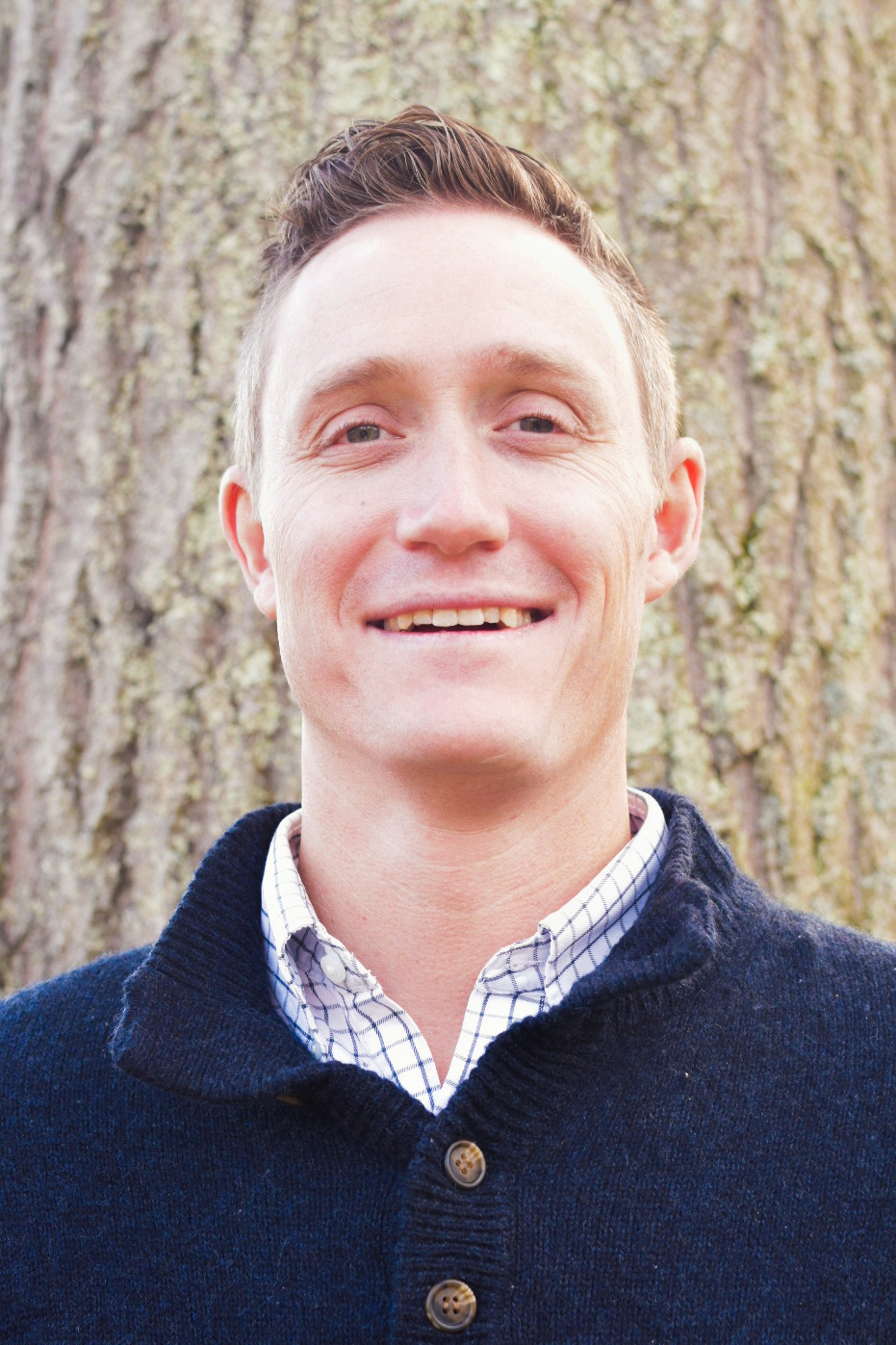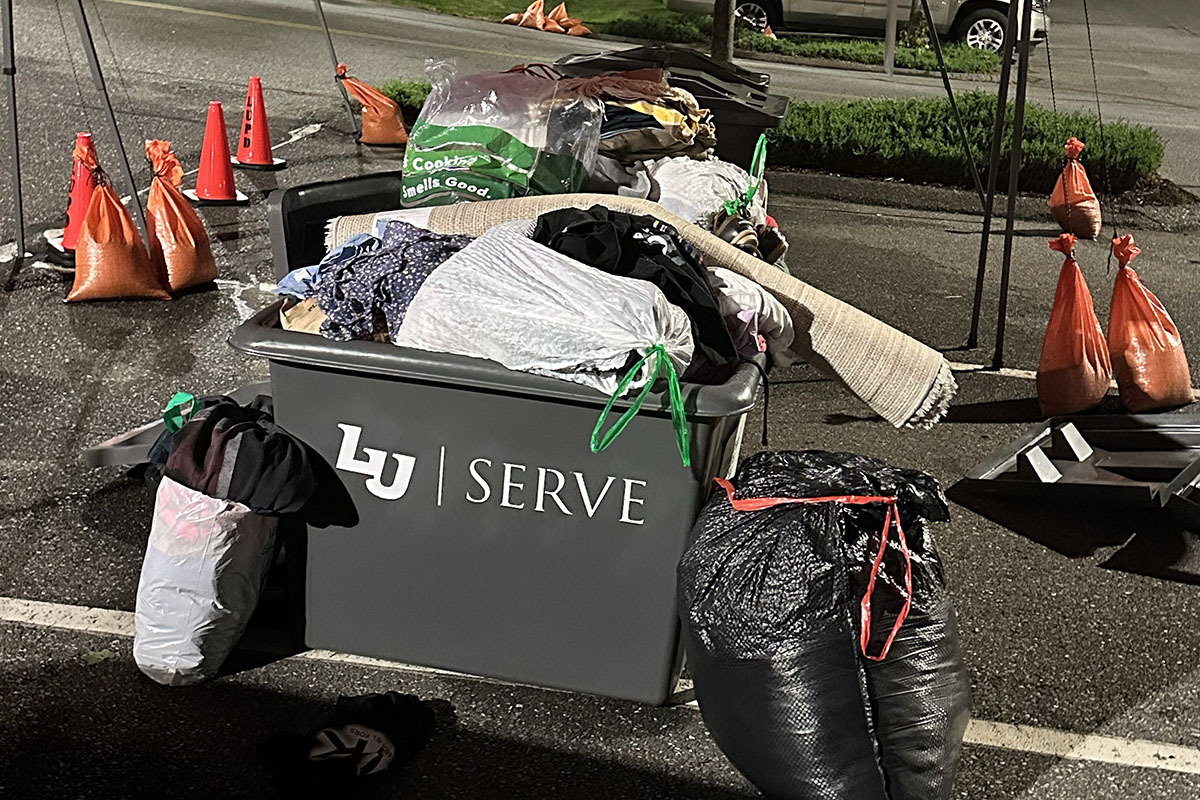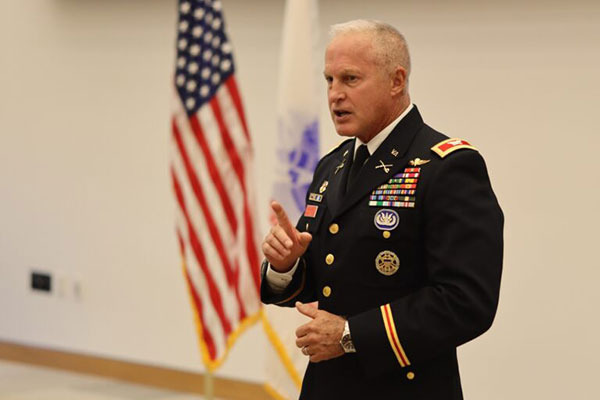Search News Archives
Filter News Articles
Additional Navigation
Liberty professor creates national directory of licensed counselors equipped to care for U.S. special forces members
November 9, 2023 : By Ryan Klinker - Office of Communications & Public Engagement
 After witnessing the widespread gap in proper clinical counseling for current and former United States Special Operations Forces (SOF) members, Dr. Christopher Ostrander, an online assistant professor in Liberty University’s Department of Counselor Education and Family Studies, created the nation’s first directory of licensed clinicians who specialize in serving the Special Operations community last year. The project, SOF Network, started with the clinical directory but moved into its second phase of a nonprofit in August.
After witnessing the widespread gap in proper clinical counseling for current and former United States Special Operations Forces (SOF) members, Dr. Christopher Ostrander, an online assistant professor in Liberty University’s Department of Counselor Education and Family Studies, created the nation’s first directory of licensed clinicians who specialize in serving the Special Operations community last year. The project, SOF Network, started with the clinical directory but moved into its second phase of a nonprofit in August.
His first glimpse at the growing need for counselors came when a former member of a special operations unit walked into his private practice in coastal North Carolina early on in his career.
“’I had never seen the specific type of comorbidity (simultaneous presence of two or more conditions) this individual had and the uniqueness of his previous professions’ demands,” Ostrander said of the service member. “I realized, ‘I haven’t read a book about this, and I don’t really know anything about this world outside of what’s in the media.’ There was a realization that this was something more complex and different from what I’d been previously trained to do. It was, and is, a completely different world.”
Then, when the veteran had to move out of the area, Ostrander knew he would need a clinician with a qualified understanding of the presenting problems along with a working knowledge of the special operations culture.
“They can be a transient community, meaning that if they’re on active duty, every couple years they can be moved around to other (locations),” Ostrander explained. “Because we (counselors) don’t have reciprocity with our licenses, even if they do find a good clinician that they connect with, when they have to leave, we as clinicians often have no one to refer them to.”
The man moved, but Ostrander said he continued to feel a pull on his heart for the man and others like him. He did more research on the barriers that special operations members face in addition to the often traumatic and transitory life in this area of the military. One obstacle he uncovered was the issue of insurance, with the military’s government insurance, Tricare, tending to pay clinicians much less per hour than most insurance companies, Ostrander said, which unintentionally pushes quality clinicians away from serving the military population. Additionally, he explained that many counselors who do accept Tricare do not have an understanding of the lifestyle and operation tempo special operators and their families face.
“(Tricare) generally pays the least, and our service personnel are some of the most deserving people,” he said. “Some providers have a passion for military members, so they do take Tricare, but I would say due to Tricare’s below-industry average reimbursement, it tends to create a vacuum of quality clinicians especially for the SOF community. I can’t tell you how many times over the last 10 years that I’ve met clients in this community who have said, ‘I tried this provider and told them what I did (overseas), and the counselor said either ‘I have no idea what you’re talking about,’ or ‘You’re scaring me because I’ve never experienced anything like that,’ or completely throw up their arms and told the veteran ‘I can’t help you.’”
In November 2018, Ostrander and his wife, Melissa, felt called by God to move to Tampa, Fla., to support a new church plant in the area. What initially seemed like a door closing to Ostrander as he prepared to shut down his practice in North Carolina in hindsight placed him in a fortunate location near MacDill Air Force Base, headquarters of the U.S. Special Operations Command (USSOCOM).
“God always sees the big picture. I was upset about terminating with my clients in North Carolina, but God had other plans,” Ostrander said. “Our license transfer got lost by the Florida Counseling Board and we ended up moving our practice from North Carolina online in the summer of 2019 just so we could make ends meet. Ironically, COVID was coming, and God had already moved us online, so we never missed a beat. Once our licenses did come through in the spring of 2020, God again started connecting me with SOF personnel in Florida along with my North Carolina clients.”
During this same period, Christopher and Melissa, who is also a professor in Liberty’s Department of Counselor Education and Family Studies, each pursued a Ph.D. in Counselor Education and Supervision through Liberty University Online Programs and graduated in 2021. Both have been teaching at Liberty ever since.
 “It became increasingly frustrating around 2021, after I had heard from multiple (special operations) clients about their stories and experiences with various barriers to finding quality mental health providers, and I felt like God was calling me to do something about this problem,” he added.
“It became increasingly frustrating around 2021, after I had heard from multiple (special operations) clients about their stories and experiences with various barriers to finding quality mental health providers, and I felt like God was calling me to do something about this problem,” he added.
By December of 2021, Ostrander had laid out his plans for the national directory of licensed clinicians for the special operations community, and SOF Network was launched in April 2022. In the first week of the website being active, a former SEAL reached out about the project.
“He was sent by God and was exactly who I needed to get this project moving,” Ostrander said. “He’s been an invaluable part of the team helping with interviewing, finding new providers, and so much more.”
They began researching and contacting other clinicians around the country who had an understanding of the special forces community — including former members themselves — who were uniquely qualified to counsel such clients, and they continued this effort for a few years. It has since grown to be recognized as a trusted resource for the community with over 50 licensed clinicians around the U.S., over 90 percent of whom are former SOF personnel and/or family members of SOF personnel. This includes former Navy SEALs, Green Berets, Marine Raiders, Army Rangers, and former clinical psychologists and behavioral health clinicians who have retired from the military and are now civilian licensed mental health care providers.
An additional aspect of SOF Network launched this August is the Pipeline Program, which identifies former or nearing retirement SOF personnel and/or wives who are pursuing a graduate or doctoral degree in clinical mental health. The program pairs them with current licensed clinicians working with the SOF community as clinical mentors. SOF Network partnered with The Honor Foundation, the biggest nonprofit for career transitioning out of special forces, to help create the pipeline.
The network also partners with SEAL Future Foundation, Operation Healing Forces, The Pillar Foundation, Special Forces Charitable Trust, and more. All of these organizations support the SOF active duty and veteran community. SOF Network’s inaugural board is led by a majority of special operations veterans and spouses, all of whom are licensed clinicians, including one Liberty graduate.
SOF Network’s goal for 2024 is to eliminate all out-of-pocket fees for clients through partnerships with other SOF specific organizations and individual donors, which would require around $2.5 million.
“It’s a really big number, but I’m confident God will supply the right partners along the way,” Ostrander said. “God continues to remove barriers as we work to give back to this incredible community.”
Looking back on the creation and growth of this passion project, Ostrander said he can only attribute it to the provision and guidance of God.
“I’m not from the special operations community, and if you’re not, there is a certain level of scrutiny (from them) because they’ve been exploited in the past in harmful ways,” he said. “In saying that, God has opened doors that I could have never opened. God is getting us into conversations that we could never have had without Him. I feel a tremendous responsibility because I know this community demands excellence, it’s something they pride themselves on, and I also feel responsible because God is opening doors that I as the vessel have to walk through. Most days I don’t carry that weight, but when it seems to push in, I have to remind myself He is the one who orchestrated all this, that it will work out in His time and His way. That reminder is always the reset I need and it helps me to get back to taking this journey one step at a time.”


